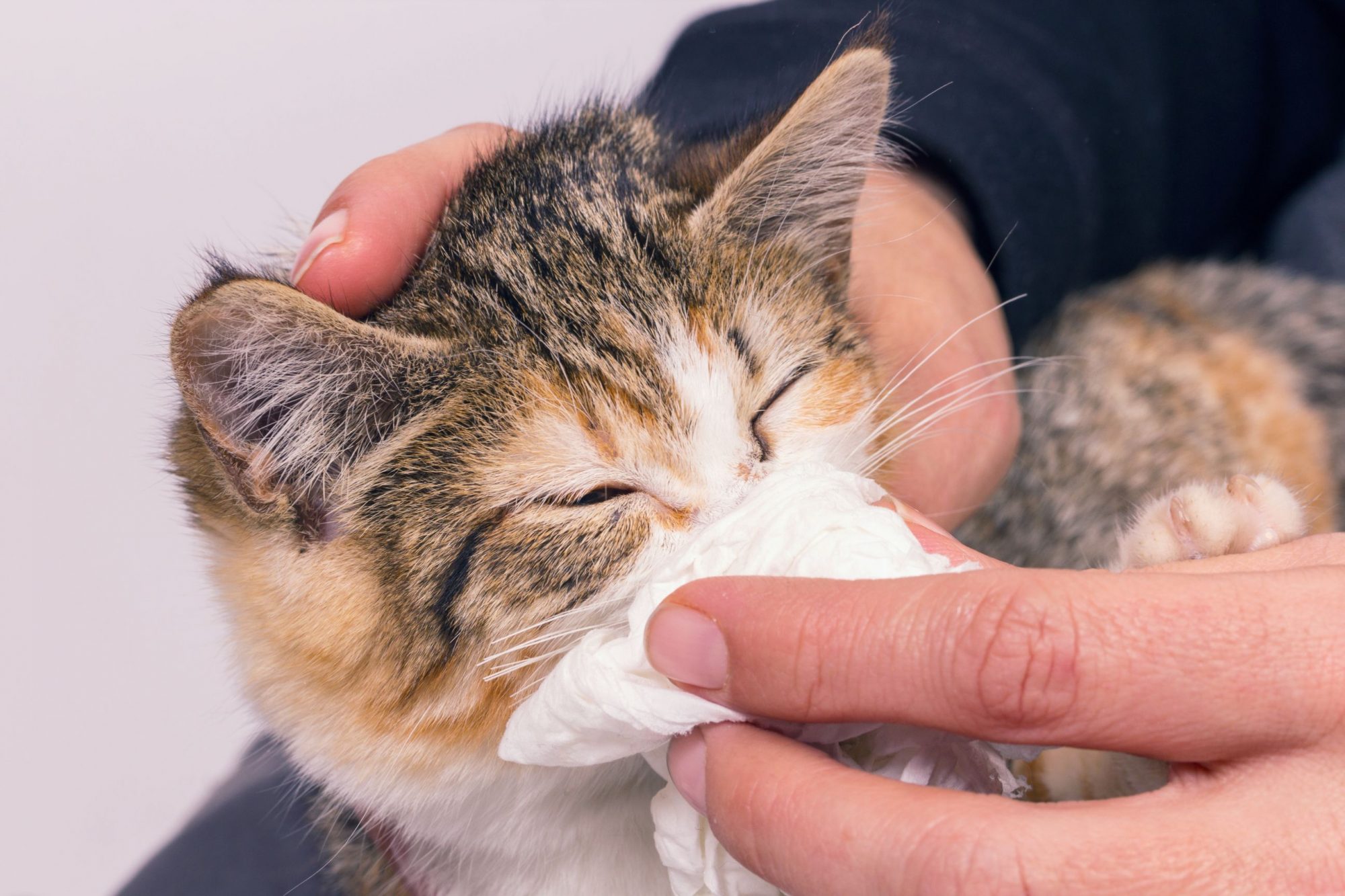
Most cat owners are painfully familiar with hairballs. An occasional sight of a cat hunching over, making wheezing sounds, and coughing up an elongated pile of stomach bile and fur isn’t always a cause for concern, but breathing difficulty is definitely alarming. Asthma in cats can sneak up on owners, so it’s best to be prepared for what it looks like and when it requires you to seek help.
Just Like Us
Asthma in cats is just as disturbing as it is in people. A sudden, unexplained coughing fit may make it hard for them to breathe. Panic sets in and makes it even harder to inhale. You might even see them coughing up mucus or begin to drool. If this ever happens to your cat, seek emergency help immediately.
Asthma in Cats
There are many different causes or triggers of asthma in cats. Some of the most common allergens include:
- Mold
- Dust mites
- Pollen
- Smoke
- Grass
- Cleaning products or other strong chemicals
- Certain foods
- Dusty litter
Some cats develop breathing problems because of other health problems, such as obesity, pneumonia, or heart disease. They could also be genetically predisposed, battling internal parasites, or living in a stressful environment.
Checking the List
Similar to the process of hacking up a hairball, asthma in cats will involve hunching close to the ground and extending the neck. As they struggle to breathe, you might see their sides quickly going in and out. Please act quickly if you see the following additional symptoms:
- Gigging or coughing, with or without drool or mucous
- Gurgling sound from the throat
- Weakness
- Wheezing
- Blue gums or lips
- Attempts to swallow
When a cat approaches 40 breaths per minute, they need emergency help. Corticosteroids can reduce lung inflammation. In some instances, cats might even need their airway dilated during a bad asthma attack. Injectable, oral, or inhaled medication can make breathing easier.
Left alone, asthma in cats can be life-threatening. Periodic flare-ups can be supported with long-term medication, but asthma in cats is porgressive and incurable.
The Takeaway
In addition to your cat’s regular wellness exam (1-2 times a year), we encourage you to schedule an appointment if you ever notice any behavioral changes in your cat. We can discuss any possible clinical signs of asthma, take digital radiographs, evaluate cells taken from the airway, and run other diagnostics that rule out underlying health conditions that cause breathing problems.
Installing air purifiers at home can reduce environmental triggers, and altering your cat’s diet to remove allergens may also be warranted. Because asthma in cats can be so terrible, and even shorten their lifespan and quality of life, we urge you to take swift action to promote overall health and wellness.
Please call us at (951) 461-4100 with any questions about asthma in cats. Our staff is always here for your cat at Sky Canyon Animal Hospital.

